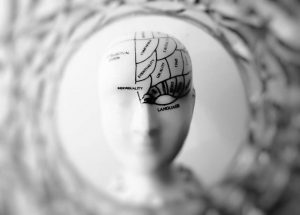Guest Blog: Telehealth for Seniors: 7 Things You Need to Know
Telehealth is changing the way we visit the doctor, and how seniors experience long-term care. COVID-19 has made telehealth a necessity for seniors, both for regular doctor visits, and for those in long-term care. Patients are more likely to suffer from diabetes as they age, and studies have also shown that patients with underlying diabetes complications are at an especially high risk for contracting COVID-19.
By communicating with medical professionals over a video-conferencing tool – like Skype or Zoom – seniors and long-term care staff can avoid unnecessary trips that might expose patients to COVID-19. And although it’s still early days, many studies indicate that telehealth is good for both doctors and patients, even for complex issues like wound care.
Why have I heard so much about telehealth and telemedicine lately?
The 2020 CARES Act expanded Medicare coverage of telemedicine, in part to address the concerns of patients who It’s one of the measures taken to prevent unnecessary exposure to COVID-19.
Telehealth and telemedicine — What’s the difference?
These terms are often used interchangeably. Telehealth is the umbrella term, and telemedicine refers specifically to treatment provided remotely.
Can telehealth deliver the same level of wound care as an in-person doctor visits?
Multiple studies indicate that patients receive the same level of care using telemedicine. This is especially true of patients who add telehealth applications to their pre-existing doctor-patient relationships.
Do I need special equipment?
Everything you need is right there on your smartphone or desktop. In general, you need access to a secure internet connection and audio-visual communication. And in some cases, audio or text alone will suffice.
Who pays for my telehealth appointment?
Medicare covers telemedicine in the event of an established patient-doctor relationship. The CARES Act also has an amendment that allows Medicare to waive this requirement. Many private insurance plans cover telemedicine as well. And in good news all-around, advanced wound care can significantly lower the overall cost of care.
Is telehealth new?
Telehealth isn’t new, just recently expanded. You’ve probably used it without realizing it, via an online portal that your doctor office. It’s also been in use for years in rural areas, where many residents live too far from doctors to receive adequate health care from in-person doctor visits alone.
What are the advantages of telehealth?
Aside from wound care, telehealth can provide easier access to a wide spectrum of health services. Seniors in long-term care shouldn’t have to sacrifice their mental health needs in order to avoid exposure to COVID-19, and telehealth is helping more seniors access mental health professionals. Remote monitoring is advantageous to patients who need regular health monitoring, including those recovering from a stroke. Telehealth can also provide handy reminders to take medication.
Guest Blog: Hearing Loss and Dementia
Age related hearing loss is the most common form of hearing loss especially in the over 65s. While deteriorating hearing due to an aging system is an (unfortunate) natural process, factors such as family history of hearing loss, smoking, and certain medication, prolonged exposure to loud noise will have an impact on its rate of deterioration and resultant severity.
The human inner ear contains hair cells that help pick up information contained within sound waves. This information is then transmitted by way of the hearing nerve to the brain for further processing. As the body matures (or due to exposure to loud noise), hair cells can become damaged and/or die. The process can start as early as in a person’s 40s, but presents far more commonly in the over 65s and the over 70s. The body is unable to regenerate new hair cells, so there will eventually come a point when the person senses that their hearing isn’t what it used to be. (Although it is often friends and family members that notice the deterioration in hearing ability and alert the individual.)
There are common problems that the hard of hearing report; but how significant their impact on the person’s daily life will vary considerably across individuals.
Common symptoms include:
• Difficulty hearing people around you
• Frequently asking people to repeat themselves
• Frustration at not being able to hear
• Certain sounds seeming overly loud
• Problems hearing in noisy areas
• Problems telling apart certain sounds such as “s” or “th”
• More difficulty understanding people with higher-pitched voices
• Ringing in the ears
Loss of hearing and its likely cause can be established after attending a hearing test. The hearing exam or hearing test will cover a review of your medical history and a physical ear exam. If the hearing loss is age-related in nature, it is often managed through the use of hearing aids. There is no cure to undo the natural aging process that results in hair cell decline, so treatment should be viewed as a means to improve quality of life by managing the condition rather than curing it.
Those that willingly or unwillingly leave hearing loss unmanaged may face further longer term health complications, including depression, and perhaps surprisingly, cognitive and mental health decline.
There is a worrying link between hearing loss and dementia currently being explored. Recent research suggests that there is a connection between hearing loss and dementia. The hard of hearing are at a high risk of experiencing social isolation due to reduced communication with their immediate surroundings; and perhaps as a result of this, they are reportedly more likely to develop dementia.
An individual with hearing loss must concentrate harder to hear and often has to use lip reading and facial expressions to fill in the gaps as to what was said. After a while, this level of concentration can lead to fatigue and symptoms that mimic physical exhaustion. Some individuals may choose to simply avoid conversation, as it is too exhausting, thereby opening the door to social isolation.
If you have concerns about your hearing or the hearing of someone you care for, do arrange a simple and quick hearing test.
Information written by Joan McKechnie BSc Hons Audiology & Speech Pathology. Joan works for UK based Hearing Direct. In addition to her role as one of the company’s audiologists, Joan helps maintain an information blog on hearing loss.
Guest Blog: Cognitive Issues in Seniors: Everything You Need To Know
In essence, mild cognitive impairment (MCI) is a condition in which an individual experiences a slight decline in mental abilities. While minor, the decline can be easily noticed by the person concerned or the people they interact with. The changes, however, are not severe enough to interfere with their routine activities and daily life.
Decline Due to Normal Aging vs. Mild Cognitive Impairment: What the Difference?
Gradual cognitive decline is sometimes evident with healthy aging. For instance, the mental processing slows down, the ability to learn new information is reduced, and the likelihood of getting distracted increases.
However, decline brought about by normal aging will not affect overall functioning or the ability to perform routine activities. Normal aging will also not affect intelligence, recognition, or long-term memory.
In normal aging, older people may forget names (and words) and misplace things occasionally. However, with mild cognitive impairment, the person forgets information and conversations one would usually remember, such as planned events and other appointments.
Does MCI Always Lead to Dementia?
Dementia is the general term used to describe the severe decline in mental function that interferes with daily living. There are instances, where a treatable disease or illness causes MCI.
However, researchers also discovered that for most patients with MCI, it is considered the point along the pathway to dementia. MCI can be secondary to various illnesses, including Parkinson’s and Alzheimer’s disease, vascular dementia, and frontotemporal dementia.
Is MCI Common?
According to the American Academy of Neurology, MCI is present in about 8 percent of people aged 65 to 69, in 15 percent of people aged 75 to 79, in 25 percent of those aged 80 to 84, and in about 37 percent of people aged 85 years or older.
Conclusion
If you suspect you have MCI, it is recommended that you see your doctor right away. While there is no specific test that can confirm a diagnosis, your doctor can tell if you have MCI based on the symptoms that manifest and the information you will provide.
About the Author
Melissa Andrews is the Content Marketing Strategist for Paradise Living Centers, an assisted living center for seniors with locations in Paradise Valley and Phoenix, Arizona. In her spare time, she enjoys cooking and going on hiking trips with her siblings and cousins.
Predicting Stroke Risk
Doctors know patients with atrial fibrillation are at a higher risk of having a stroke, and now a new study finds that integrating two separate clinical risk score models more accurately helps doctors assess the stroke risk of patients with Afib.
The composite stroke decision tool studied by researchers from the Intermountain Medical Center Heart Institute in Salt Lake City combines the widely used CHA2DS2-VASc with the Intermountain Risk Scores (IMRS) to derive and validate new stroke prediction scores.
The study shows the new model, IMRS-VASc, was significantly more effective in predicting stroke risk and will give clinicians a more effective and accurate tool to assess patients with cardiovascular disease.
Atrial fibrillation, the most common heart arrhythmia in the world, affects more than 2.7 million American adults. The abnormal heart rhythm causes blood to pool and clot in the heart, and when those blood clots break free, they can cause a stroke.
Researchers found that the new IMRS-VASc risk score model nearly doubles their ability to appropriately predict stroke risk compared to the traditional CHA2DS2-VASc risk tool. The development of the IMRS-VASc risk score model is the first step in a research pathway for other conditions that will ultimately result in time and cost savings for both patient and physician.
Researchers presented results from the study at the Heart Rhythm Society’s 39th annual Scientific Sessions in Boston earlier this month.




